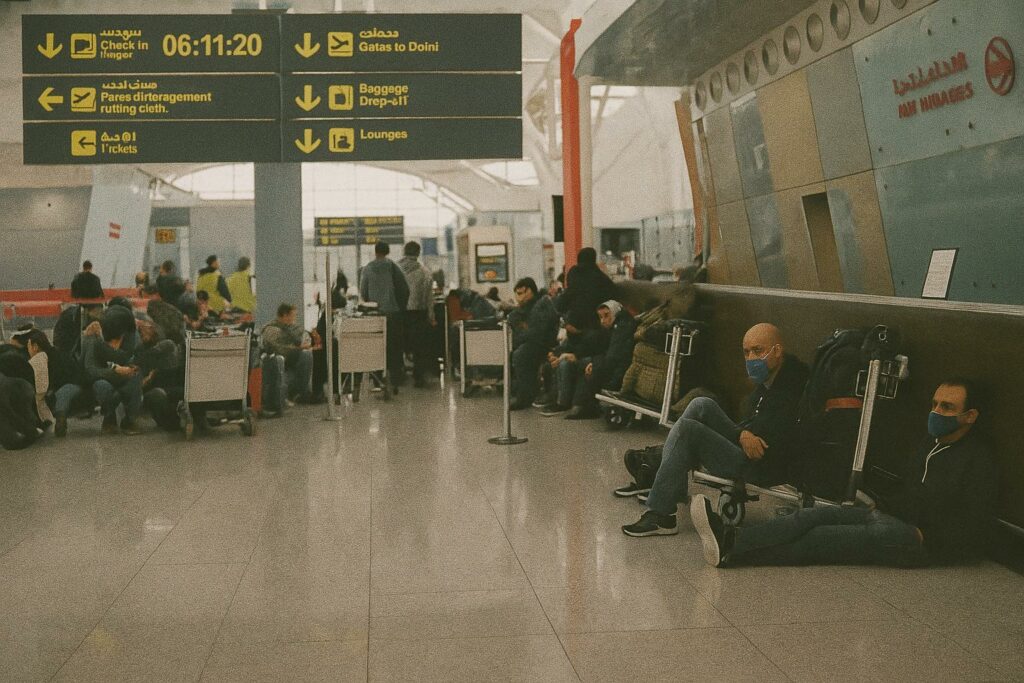A Viral Experiment in Algiers
A peculiar event at Algiers Airport captured widespread attention when a traveler walked through the terminals in nothing but white socks to test the area’s cleanliness. His methodical approach, captured on video and quickly disseminated across social media platforms such as Instagram and TikTok, soon garnered millions of views. Dubbed ‘the sock incident,’ this act led to a broader discussion about public space maintenance, notably within the African continent.
Divided Reactions: Praise and Criticism
The traveler’s initiative was not accidental but a carefully executed test of cleanliness. Starting at the airport entrance and ending inside an Air Algérie flight to London, his route deemed his socks impressively clean by journey’s end. While many online users lauded the airport for its commendable maintenance, others rebuked the act as a provocative breach of hygienic norms. This polarized feedback highlights the contentious nature of such public-domain experiments.
A Broader African Context
Similar acts have been seen elsewhere in Africa, where citizens and influencers attempt to draw attention to the state of public infrastructures. In Nigeria, a prominent YouTuber conducted airport reviews, including an experiment at Lagos’ Murtala-Muhammed Airport where he discreetly dropped a towel to test the responsiveness of cleaning services, sparking critique on their performance. Moreover, an audacious Kenyan student produced a viral video to showcase inefficiencies within Nairobi’s healthcare facilities, relaunching discussions on medical access.
The Societal Impact of Viral Challenges
In Senegal, the #CleanOurStations campaign emerged, whereby Dakar’s railway passengers spotlighted station conditions via social media. Positive feedback on renovated areas contrasted with criticisms of neglect, prompting governmental audits. These incidents underscore how digital platforms can galvanize public discourse and pressure authorities toward accountability and improvement.

